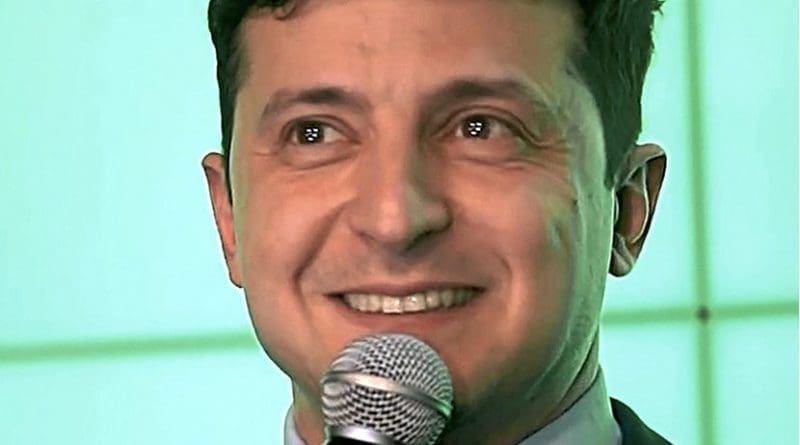Zelensky’s Presidency Is Unlikely to Change Ukraine’s Foreign Policy – OpEd
The polls after the second round of presidential elections in Ukraine gave Volodymyr Zelensky more than 70% of the public’s support. Zelensky, 41, challenged the incumbent president Petro Poroshenko, who has already admitted his defeat.
Questions which occupied analysts around the world were two-fold: how possible is it that a new president would be able to change the internal situation (battle with corruption, etc.) in the country; second, what will happen to Ukraine’s foreign policy?
The situation inside Ukraine will require meticulous work on behalf of the new president. The elites might be unwilling to accept his propositions and policy moves, which could create tensions. What is clear, though, is that the ordinary population would be supportive of even radical moves to clear the country of corruption and ineffective governance.
On the foreign policy front, Ukraine’s major issue will be the war in Donbas and relations with Russia. There have been fears that with Zelensky at the helm, Ukraine’s foreign policy would radically change in favor of Russia. In fact, it will be very difficult for him to do this, as in the last five years since the Ukraine crisis broke out following the annexation of the Crimean Peninsula, Ukraine has ratified the Association Agreement with the European Union, the non-signing of which actually deposed the former president Viktor Yanukovych, and has received visa-free access for its citizens to the EU (except for the UK and Ireland) and four other Schengen-associated countries.
Moreover, Kiev has reinforced the Ukrainian army amid the ongoing conflict and contained the conflict with Russia to eastern Ukraine and the Azov Sea.
On a cultural level, recently, Ukraine’s Orthodox Church gained autocephaly (independence) from the Russian Church. On the economic front, too, there have been changes, as Ukraine’s trade has been redirected to Europe rather being mostly dependent on Russia, as was the case before 2014.
Thus, it is highly unlikely that Ukraine’s foreign policy will change under Zelensky: there are simply too many economic, military and ideological moves made that connect the country to the West.
Zelensky may indeed meet Putin and even soften his rhetoric towards Russia, but on a grander level of state politics, he will not change Ukraine’s view of Crimea and the conflict in Donbas. A recent spectacular rise of national self-consciousness among ordinary Ukrainians will not tolerate any U-turn to the country’s foreign policy. A democratically elected Zelensky is also a hostage of Ukrainian public opinion.
The Russian public is watching the peaceful changes in Ukraine with great interest and even hopes for a similar process inside Russia. The large neighboring Slavic country, Ukraine, will have a greater influence on the Russians than, for example, Georgia’s path to democratization. Georgia’s successes have been small due to the country’s size as well as cultural differences. Moscow, therefore, could easily bend the narrative and argue that Georgia’s recent successes are minimal and contemptuous.
With Ukraine it is different. While the Russians have been arguing since the 2014 that Ukraine’s problems were the result of a “divorce” with Moscow, now they see real results of the democratic changes in Kiev. Public debates, peaceful co-existence of rival candidates and, most importantly, presidential changes; all this is deeply hoped for and expected at least in some sections of the Russian population.
Zelensky’s win also shows that among post-Soviet Slavic states, Ukraine is in fact the only one which has regularly changed heads of the state. Thus, this development might also have an influence on Belarus where eventually the time will come when long-ruling Alexander Lukashenka will have to make a choice between an independent Belarussian successor or Belarus integrated into Russia (and talks about this latter development have become common in media resources of late).
Zelensky’s presidency and the way he was chosen undermines Russia’s narrative, where the success of Ukraine would be against a common cultural, even geopolitical, perception among the Russian elites that Kiev has historically been unable to achieve anything without Moscow’s support.
This article was published by Georgia Today

